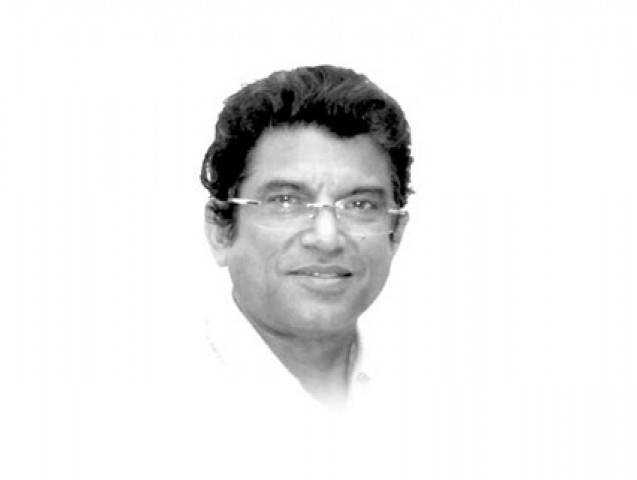This is our war
Army needs the support of the nation to fight war; political parties, media can play a major role in educating people.

Pakistan faced an armed uprising in 1994, once Tehreek-e-Nafaz-e-Shariat-e-Mohammadi followers occupied parts of the Malakand Division and demanded enforcement of Sharia law. The Pakistani Taliban started operating in some parts of Fata in 1997/98. However, the US invasion of Afghanistan, al Qaeda’s flight to Pakistan and bans on jihadist and sectarian organisations gave a new dimension to militancy, violence and terrorism. The US invaded Afghanistan with the objective to strike al Qaeda training camps and military installations of the Taliban regime. The US did not adopt a comprehensive approach to deal with the situation like taking into consideration factors like past Afghan history of resistance and prevention of Taliban resurgence. US forces also failed to locate the al Qaeda leadership while they were in Afghanistan after 9/11. They succeeded in disrupting and dislocating both al Qaeda and the Taliban but the al Qaeda leadership, along with foreign militants, crossed over to different parts of Pakistan and initiated terrorist activities. The first post-9/11 suicide attack was executed on March 17, 2002, on a church in Islamabad. Since then, a spate of violence has killed about 40,000 Pakistanis.
The Americans want to leave but not with the impression that they have been defeated, which can motivate and embolden jihadis all over the world. Their main concern is to protect their homeland from another terrorist attack. Their strategy now is to disrupt, dismantle and defeat al Qaeda in Pakistan and Afghanistan. The US has realised that the Taliban have no global agenda and their interests are confined to Afghanistan. The US strategy is no longer directed at defeating the Taliban but to degrade their abilities to occupy and control territory. In case the Afghan Taliban guarantee that Afghan soil will never be used by anti-West Islamic jihadists, the US will be more than willing to accommodate them. If the US can manage a breakthrough, which can lead to formation of a stable government in Kabul, they will focus on al Qaeda in Pakistan — if it is not secured by our own army by then.
In the recent past, the TTP, through videos and press statements, has revealed its agenda to impose the Sharia law through the use of force. One option to deal with this is to negotiate, which some political parties that are unfamiliar with ground realities, propose. The option of negotiations has been exercised on many occasions since 2001. In case the TTP declares that it will lay down arms on US withdrawal from Afghanistan and will not run a parallel administration, the army should pause all operations against them. But it will not do so as it has designs to gain power and rule. To degrade its ability to occupy and control areas, army operations have to be conducted. Other steps to be taken include negotiating with those who are willing to surrender, granting amnesty to young ones and de-radicalising them and rehabilitating and developing the areas. Dealing with terrorism while Nato forces are in Afghanistan is comparatively easier than after their withdrawal.
The army needs the support of the nation to fight a war. Political parties and the media can play a major role in educating people about the threat pointed out by General Kayani. Imran Khan has a large motivated youth following. As a responsible leader, since he is against this war, he should get a briefing from the army about the ground realities and, if convinced, he should reconsider his policy about the war on terror.
Published in The Express Tribune, August 16th, 2012.














COMMENTS
Comments are moderated and generally will be posted if they are on-topic and not abusive.
For more information, please see our Comments FAQ